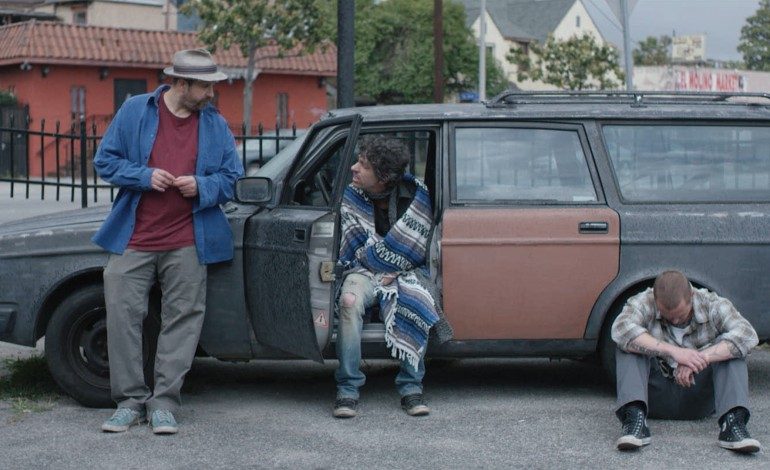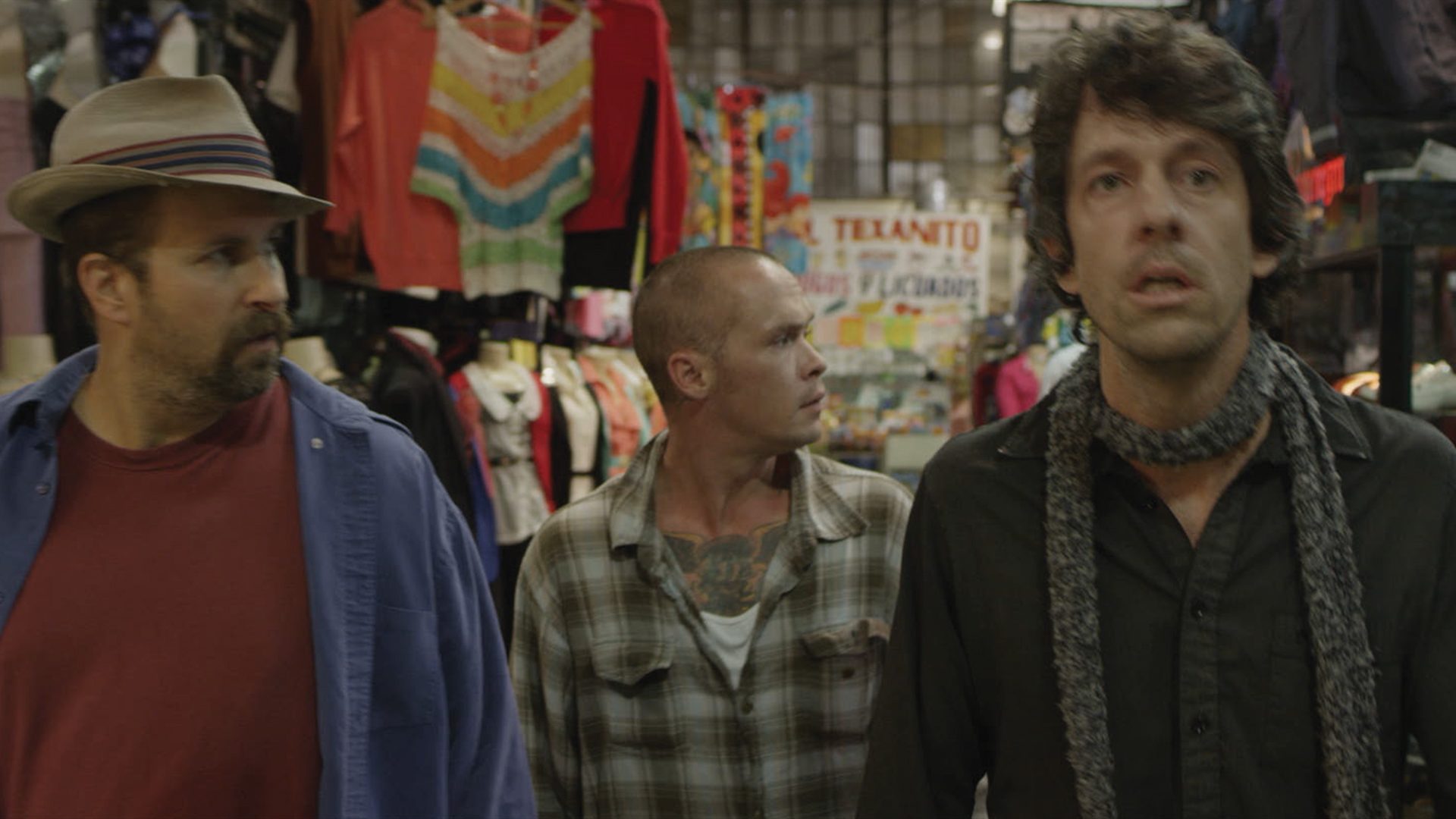

If the name Tommy Swerdlow doesn’t ring a bell, some of the films he’s worked on almost certainly will. As the writer of Cool Runnings, The Little Giants, and Snow Dogs, if you were a kid in the 90’s, you probably saw at least one of his movies. Swerdlow’s career wouldn’t be particularly noteworthy, he’s not exactly prolific, were it not for the revelation years later that he wrote all those movies while high on heroin. In the last fifteen years, Swerdlow has sobered up, recorded one album, directed one short, and had one open heart surgery. He’s now returning to the big screen with his feature film debut, A Thousand Junkies. Equal parts hysterical and horrifying, the film follows a day in the life of a junkie, searching for heroin and stumbling upon occasional profundity along the way, in what has all the trappings of a cult classic in the making.
There’s precious little to the actual plot of A Thousand Junkies. Swerdlow stars as Tommy, a writer and heroin addict on the search for a score. With him are his two fellow junkies TJ, played by TJ Bowen who also cowrites, and Blake, played by Blake Heron (We Were Soldiers). When their usual dealer can’t meet them, the three spend the day criss-crossing the city in Tommy’s beat up Volvo looking for drugs, or as they put it, ‘looking to get well’. As it turns out, drugs are somewhat difficult to come by when you have no money and a reputation for screwing over everyone you meet. Facing dead end after dead end, Tommy, TJ, and Blake are forced to look inward at how they dug themselves in a hole this deep.
The film plays out like an odyssey across Los Angeles, it’s much more a character study of addiction than anything else. Swerdlow uses the structure to link together vignettes that expose the inner lives junkies. The three wax poetic about the public bathrooms they’ve shot up in, discuss the best places to inject, and bemoan the friends and family members who won’t lend them money or drugs anymore. Drawing heavily from Swerdlow’s own life, A Thousand Junkies drips authenticity, tapping into the profound sense of self loathing and desperation that fuel addiction. The result is one of the most sobering depictions of drug addiction committed to film.
It’s a harrowing film, but its also a very funny one. With an ear for profoundly vulgar and blisteringly funny dialog, Swerdlow and Bowen prove adept at wringing almost absurdist comedy out of the increasingly dire plight of Tommy, TJ, and Blake. The film paints the addict as a profoundly tragic figure, but also an inherently silly one. This characterization reaches its apotheosis in Igor (Dinarte de Freitas) a gleefully psychotic addict who speaks about heroin with an almost child-like enthusiasm. He’s contrasted with the characters less enthusiastically dragged into the junkie life like Blake’s mother, who hides his father’s watch so he won’t pawn it, or TJ’s girlfriend who has stacks of empty CD cases because TJ has pawned them all. The result is a film that is simultaneously difficult to watch and compulsively watchable.
Verdict: 4 out of 5
At one point in A Thousand Junkies, Tommy attempts to do the math on how much of his life has been spent waiting for drug dealers. It’s a deeply sad exercise that illustrates one of the invisible costs of addiction. You’d be hard pressed to find a more accurate portrayal of addiction on film. The most popular analog will likely be Trainspotting, but there’s something even rawer about the day-in-the-life nature of A Thousand Junkies. At the end of the film, nothing is resolved. Nothing is different. The film’s name comes from a speech TJ gives to Blake whose thinking about kicking the habbit. ‘A thousand junkies’, TJ says, that’s the number of junkies he’s seen try to quit and fail. And that’s perhaps the most difficult thing to grasp while watching this film in the midst of this country’s opioid epidemic. For every Tommy, TJ, and Blake, there are thousands more.
A Thousand Junkies is premiering at the 2017 Tribeca Film Festival.

